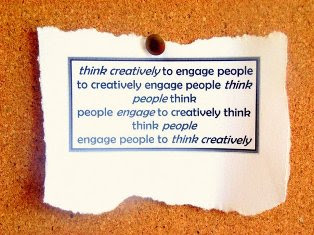 Through a series of fortunate events, I had my first taste of a startup business between school and college. I was the first paid employee of a software business in 1983. I'd taught myself to program from books in the days you didn't see computers, hand coding, hand running and testing, and put that into more practical use when Acorns turned up at school. Three of us sixth formers had even set up a tiny enterprise selling game and utility software we'd written to people at computer shows. Then I found myself surrounded by experienced computer people, something of a dream come true.
Through a series of fortunate events, I had my first taste of a startup business between school and college. I was the first paid employee of a software business in 1983. I'd taught myself to program from books in the days you didn't see computers, hand coding, hand running and testing, and put that into more practical use when Acorns turned up at school. Three of us sixth formers had even set up a tiny enterprise selling game and utility software we'd written to people at computer shows. Then I found myself surrounded by experienced computer people, something of a dream come true.
So I saw and got involved in innovation without ever naming it as such. We sold other people's software and developed our own. Before Windows, before the direct forerunners of the PC, there was no guarantee programs would work properly. One of the things I used to do was to debug other people's programs, for instance finding out why one spreadsheet was a memory hog, why another word processor messed up the screen display on the systems that were our focus. Debug meant running them in a debugger, step by step with no access to source code. Usually I tracked down the problem, I'd write a bit of fixing code, find somewhere to insert it and update our software masters. And that was one of the reasons we got a reputation of selling the same software you could buy from three bigger distributors for higher prices but with better value.
My job title was support programmer; I felt the problems from customers and took action to fix them at source. There was no-one else to do it, so I did it myself. I was given freedom to do this, and the wiser heads of my bosses found ways to turn these skills into differentiation. Lots of things to do, so few of us to do them, and the urgent daily need to sell things and keep the door open. Hunger makes good kitchen. I moved into marketing when I realised (was helped to realise) that my core skill was practical strategic insight.
Through a corporate career, I consciously tried to keep that thinking going, and whatever my day job I sought out people with small businesses or new ideas who would like fresh eyes. And I developed a reputation for being someone whose advice was worth having and whose plans tended to work, even if (typical mathematician) my reasoning was sometimes utterly unintelligible.
I was - and remain - excited that large enterprises have the resources to achieve amazing things; I was - and remain - convinced that most large enterprises tend to continually self-organise to prevent this ever happening. The best results can come from skunk-works: semi-authorised, resource-strapped, teams ready to be audacious and take risks. I've done some; and I've had to terminate some that haven't delivered.
Excuse the I-fest. This is intensely personal experience.
In times of turmoil, what we can be sure of is this: what used to work may fail; what used to define excellence may have become toxic; what can't be done can after all, perhaps.
The Gadarene banking swine, possessed by a spirit of - well, you choose - galloped off the cliff. The UK Government caught them in fall, with the result that Legion is now free to rampage.
So we the people have become leading shareholders in banks. The Government wants no part in day-to-day operations, lacking the expertise, so we have incremental change and business-as-usual. Banks don't lend, because the model is the same. They loved their own astonishing risk-taking because they either misunderstood it or calculated that personally it was a win-win, even if (as it has) it all went wrong. And now they hate everyone else's risk, because what used to be the heartbeat of their operation, the local banking team, is de-skilled and disempowered.
Breathe deeply now. Are you ready?
The Government needs to get the best asset-strippers in the country (and yes, we do have some of the best in the world) on the case on our behalf.
They are the people who can make good decisions about how to deal with organisational structures, remuneration policy and junk operations.
They are the people who will find the profit opportunity on the ground - the opportunity that derives directly from the risk in small and medium-sized businesses and their need for borrowing.
They are the people who will rewrite the rules and reshape the products to deliver on that opportunity.
'Business as usual' seems to be shaping up as the worst of all possible worlds: printing money to prop up failing monoliths, with loose change left over for gesture politics, and the reality of surging unemployment. 'Wise heads' nodding that this is what it means to make the best of a bad job.
We need an economic surge. And that must come from the real resource - people freed to think and act creatively, to collaborate and share (redundant) skills. Dragon's Den in every coffee bar. And a benefits system that recognises that this is no worse, and may be infinitely better, than sending off yet another CV for a 5% chance of an interview.








 And here are some thoughts for mobile operators.
And here are some thoughts for mobile operators.